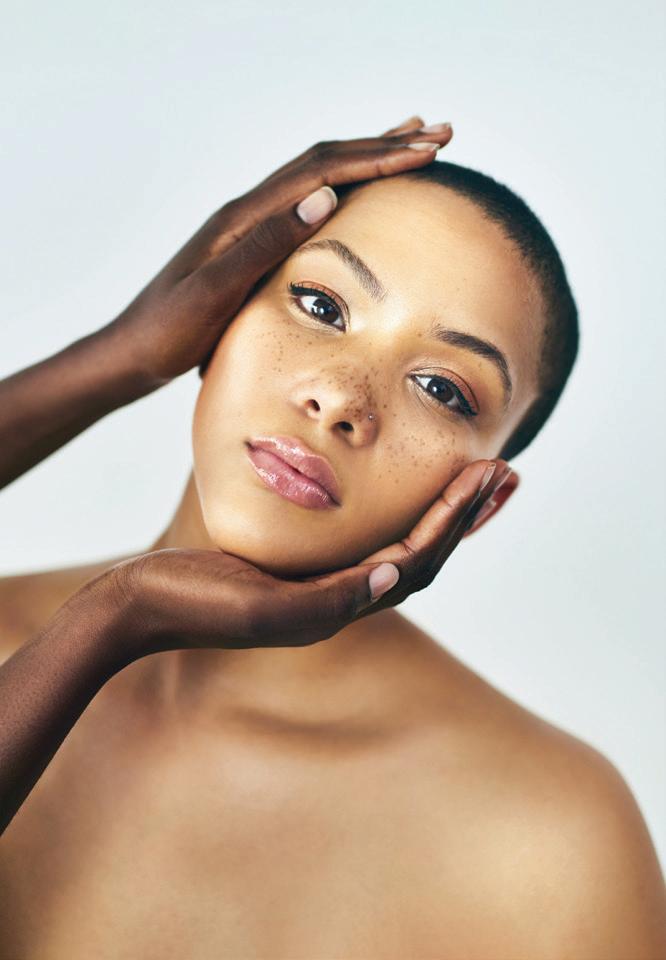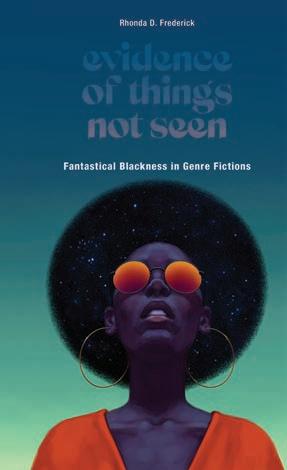
1 minute read
Branding Black Womanhood
Media Citizenship from Black Power to Black Girl Magic
TI MEKA N. TOUNSEL
CaShawn Thompson crafted Black Girls Are Magic as a proclamation of Black women’s resilience in 2013. Less than ve years later, it had been repurposed as a gateway to an attractive niche market. Branding Black Womanhood: Media Citizenship from Black Power to Black Girl Magic examines the commercial infrastructure that absorbed Thompson’s mantra. While the terminology may have changed over the years, mainstream brands and mass media companies have consistently sought to acknowledge Black women’s possession of a distinct magic or power when it suits their pro t agendas.
Beginning with the inception of the Essence brand in the late 1960s, Timeka N. Tounsel examines the individuals and institutions that have recon gured Black women’s empowerment as a business enterprise. Ultimately, these commercial gatekeepers have constructed an image economy that operates as both a sacred space for Black women and an easy hunting ground for their dollars.
TIMEKA N. TOUNSEL is an assistant professor of African American studies and media studies at Pennsylvania State University.
Branding Black Womanhood
174 pp 12 b/w images 6 x 9
978-1-9788-2990-9 paper $24.95S
978-1-9788-2991-6 cloth $59.95SU
June 2022
Media • Popular Culture
African American Studies
Women’s Studies
Evidence of Things Not Seen
Fantastical Blackness in Genre Fictions

RHONDA D. FREDER I CK
Evidence of Things Not Seen: Fantastical Blackness in Genre Fictions is an interdisciplinary study of blackness in genre literature of the Americas. The “fantastical” in fantastical blackness is conceived by an unrestrained imagination because it lives, despite every attempt at annihilation. This blackness amazes because it refuses the limits of anti-blackness. As put to work in this project, fantastical blackness is an ethical praxis that centers black self-knowledge as a point of departure rather than as a reaction to threatening or diminishing dominant narratives. Mystery, romance, fantasy, mixed-genre, and science ctions’ unrestrained imaginings profoundly communicate this quality of blackness, speci cally here through the work of Barbara Neely, Colson Whitehead, Nalo Hopkinson, and Colin Channer. When black writers center this expressive quality, they make fantastical blackness available to a broad audience that then uses its imaginable vocabularies to reshape extra-literary realities. Ultimately, popular genres’ imaginable possibilities offer strategies through which the made up can be made real.
RHONDA FREDERICK is an associate professor of African and African diaspora studies and English at Boston College in Massachusetts. She is the author of “Colón Man a Come”: Mythographies of Panama Canal Migration
222 pp 6.125 x 9.25
978-1-9788-1806-4 paper $34.95S
978-1-9788-1807-1 cloth $120.00SU
July 2022
Literary Studies • Cultural Studies
Black Studies
304 pp 40 b/w, 15 color images
6.125 x 9.25
978-0-8135-6358-9 paper $39.95S
978-1-9788-3137-7 cloth $120.00SU
July 2022
Film Studies • Beauty & Grooming


